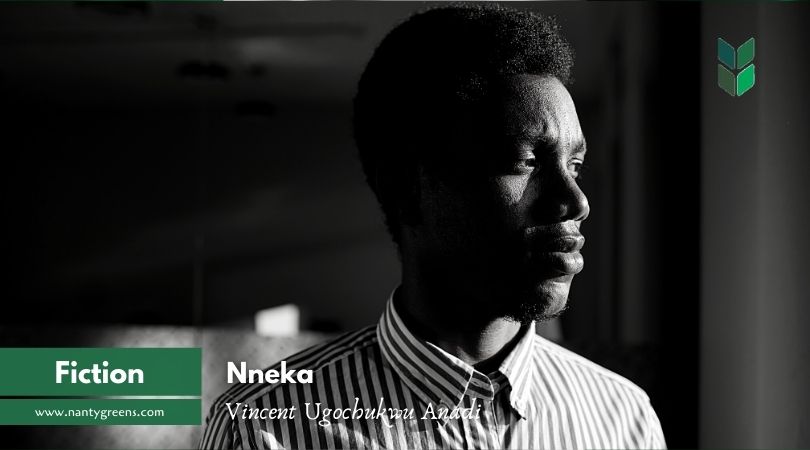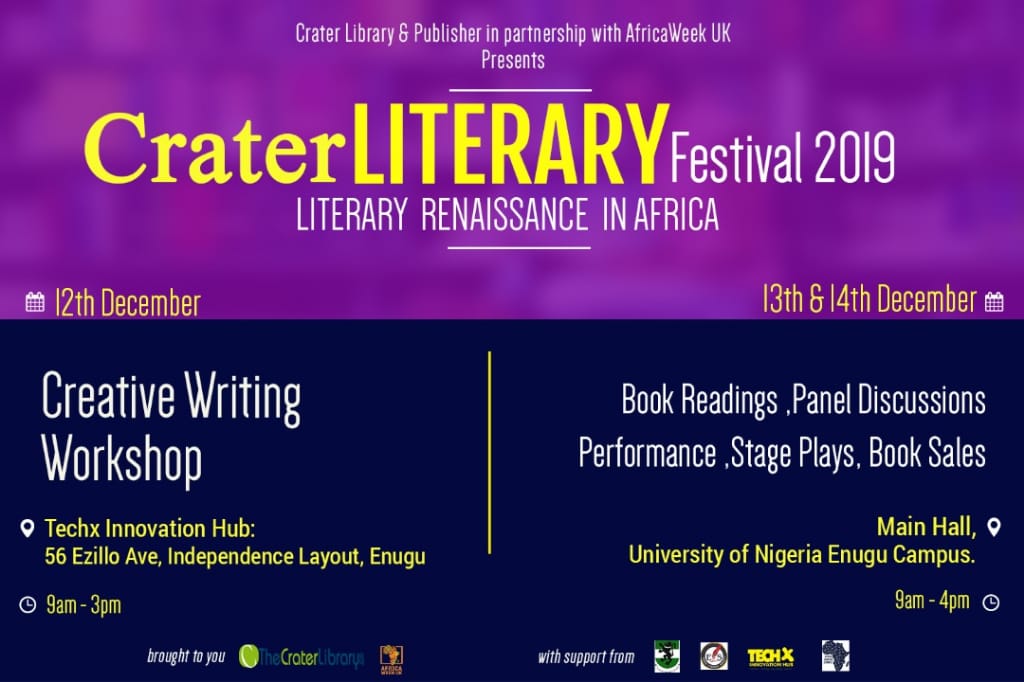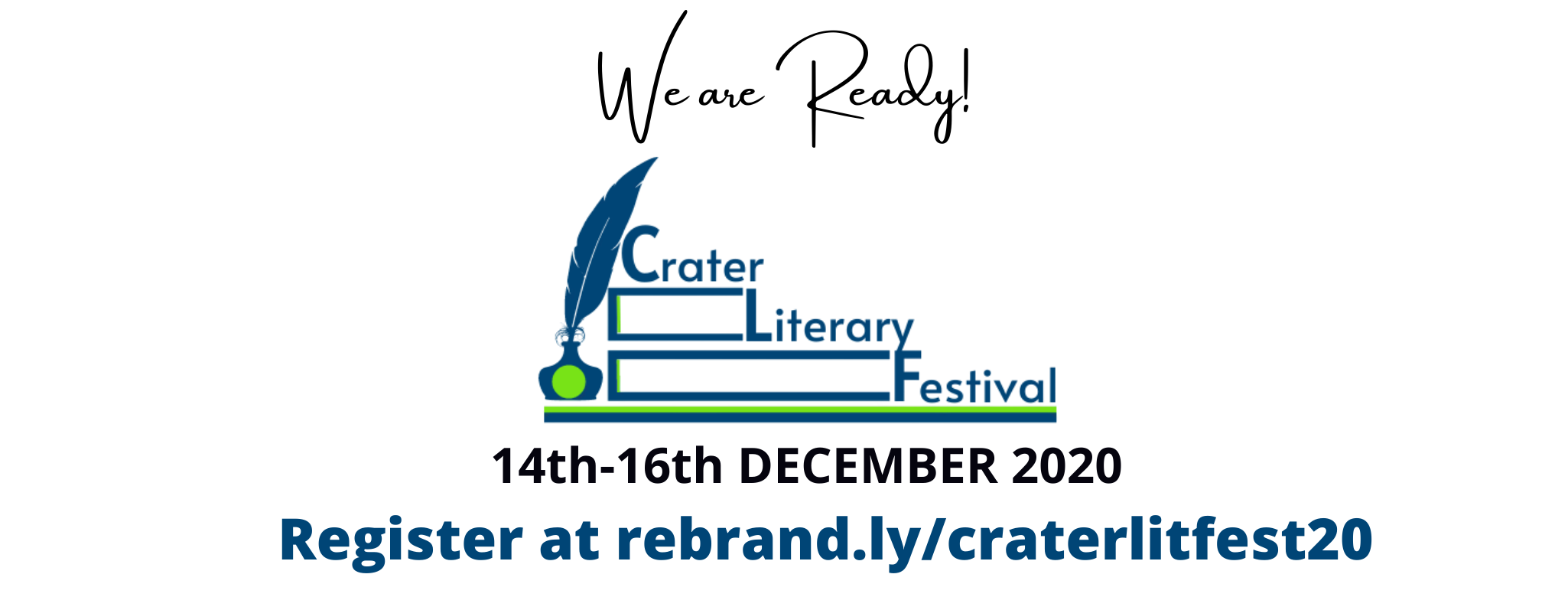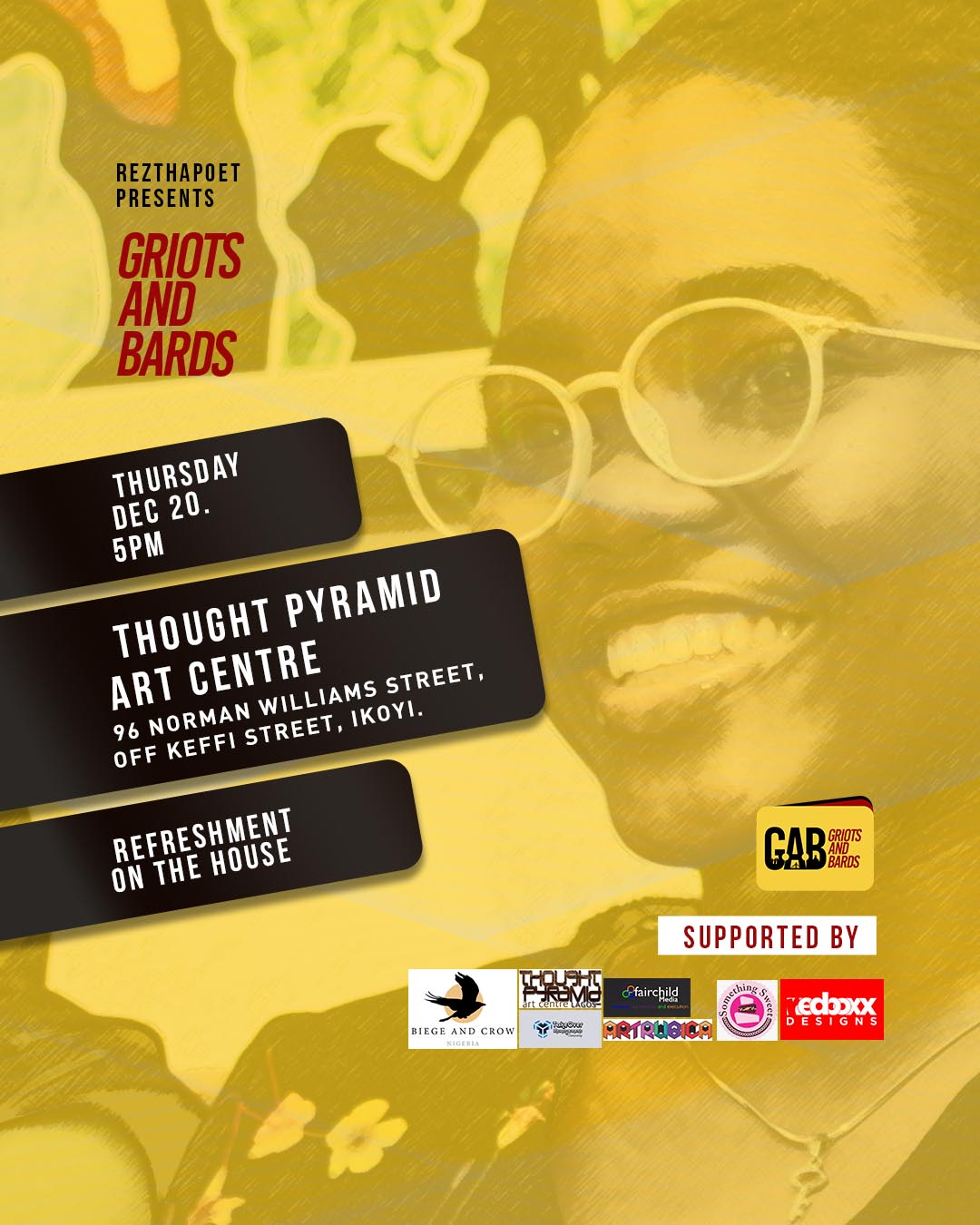
Yesterday was another 14th day of April. Dressed up in my white canvas, blue jeans trouser, blue polo and blue sweater, I made my way to an uncompleted building, located in the premises of the University of Nigeria, Nsukka. Couples, young students of the University, who have had (or is still going to have) their evening meals at Chitis, one of the most popular restaurants in the school, filled the road leading to the uncompleted building. The uncompleted building, which sits behind Carver Building, very close to Chitis, is one, out of the many uncompleted buildings on the school ground. The air rings with laughter and giggles, making the weather hotter — making my having a sweater on weirder. This was a day men wore singlets and shorts; girls, sleeveless tops and bum shorts, all in an attempt to get more air to the skin.
A girl, fair in complexion, gave me the ‘is this one okay?’ look. I wouldn’t have taken any special notice of it, if not that the look lingered. It outlasted the one the guy with the Afro hairstyle gave me seconds ago. It outlasted the one a girl in a white lab coat, flowing with the elegance of a Catholic priest’s chasuble, with a book imprisoned under her armpit gave me, when we met, my carbon dioxide almost becoming her oxygen. Many more lab coats shone into my eyes, each sparkling as if in a competition to outdo the other; as if in a bid to outdo naturally occurring diamonds. Talk of diamonds and I’ll show you the glowing skins of these girls, who from Carver Building lighted up different parts of the school. Carver Building — the land of young scientists and scientists to be.
The looks were as a result of my weird dressing, that I knew. But many of these looks, ended up in shrugs, or non-interested giggles, making it easy for me to ignore them all, without even taking in the face or clothing of the onlooker. There was nothing special about them, you know, nothing that couldn’t be ignored. But this girl, whose white top is a little paler than her face, with her hair cut as low as mine, gave me a look that I couldn’t ignore. It was not a non-participant look that lasted seconds. In her face, I didn’t see the slight amusement I saw on the others’ faces. Rather it was a concerned look, coming from one who’s empathetic, who understands that all is not well with one dressed like I was, and who was interested in helping, in whichever way she could. It was a look that lasted minutes. As she slowed down her pace, I knew within me that she would stop me, that she would ask questions, and that I wasn’t ready for any conversation, especially with a random girl I never knew. I hastened my steps and was able to get behind the uncompleted building, before she could get to me. Like mbe in the Igbo folklores, I sneaked into the building, drawing not the attention of the construction workers.
That had been my way of existing for the three years I’d been a student of the University of Nigeria. I spend every evening of the 14th day of April, in this uncompleted building, with my blue sweater, the last gift my mother gave me, before dying on that evening, after cutting my birthday cake with me; after playing with me, as if I was a toddler, though I was fifteen then. How painful it’s to me now, that in my household, since her death, we spend the morning of every 14th day of April celebrating my nativity, and the evening mourning the death of a beloved mother. And wife. How painful it is to me, that my dad, who I never saw cry before my 15th anniversary, now cries on every 14th day of April, even five years after his wife’s death. How painful it is to me now, that the construction workers have resumed work in the uncompleted building, and guessing from their progress, the building might be unavailable to me, 365 days from now.
Mother was loved by all her children — my elder sister and I — and by her husband. Mother was the glue that bonded the family, bringing agreements amidst disagreements. When everyone is a Pilate in the house, mother is never afraid of becoming Jesus, sacrificing her joy for the joy of the family, though she would never agree to doing that. She had always said to me that “the joy of the family is my joy. You can never claim to be happy when the family is in shambles. Once you have a family, you’re no longer a distinct person but part of a distinct family”.
My dad would always ask me, when she was still alive:
“Do you know why your mum is called Nneka?”
I had always provided a negative answer, partly because I enjoyed the lecture that follows my negative answer, partly because I felt the lecture would still come, irrespective of what I answer.
“Mother is Supreme, not because the mother is physically stronger than the father (which sometimes happens), but because the mother is the foundation upon which the building, family, is erected. The mother is also a pillar, supporting this building which upon her stands, and the support becomes more formidable, should the husband, and the children, become in themselves, extra pillars. But of what use is a second or third or even fourth pillar to a house whose foundation is faulty? Even the Igbo man understands this, and that’s why even though the Igbo man recognize that God is a genderless entity, still addresses God as a female entity. In the Igbo cosmology, Chukwu bụ nwaanyị, and that’s for a reason”.
Though I never understood his talks about the Igbo cosmology and the gender of God then, but as a kid, I’ve not only seen the goodness of my mother, who lost her personhood so that we might gain ours, but I’ve also heard of it in details dating past my birth, from a man who adores her. On nights following these lectures, I always dream of heaven, and my mother seated in a golden throne, with golden crowns, brighter than all the stars put together, blazing in her head, giving out orders to her angels.(Though I can’t imagine her really giving out orders. Maybe advices, maybe suggestions, maybe directives, but definitely not orders. It’s never her thing). If God is female, I can’t imagine any other woman worthy of being God, save for my mother.
The love my dad has for my mother, which is a type of love I’ve learnt to have for him also, since after my mother’s death, is like the neutrino stars. It might lose all its heats, and even its splendors, but it’s still there, in its full essence, as a neutrino star. Just like the neutrino star, it can never of itself die. It’s immortal. That was why when I once asked my dad whether he would remarry, he answered, “I’ve been married to your mum for twenty four years, and we’ve loved ourselves for those twenty four years. How do I replace a love and life of twenty-four years? What’s the need?”
As I sat in one of the rooms in the uncompleted building, hearing but not listening to the footsteps of the workers, as they carried blocks, and cement bags, and whatever they needed, to the upper part of the building, I remembered my dad’s call earlier on that day. Dad had called at 3:00 a.m. to wish me a happy birthday. “Happy Birthday Ike,” he had said to me over the phone, with a voice belonging more to a sorrowing man than a celebrating soul, before he started sobbing over the phone. More tears would flow by 10:00 a.m., when my sister, a student of Nnamdi Azikiwe University, organized a video call for the family. In her dramatic manner, she wore one of mum’s most loved gown, making her look like a younger version of my, our, dear Nneka.
Remembering that morning led me into more despair. It made me see the room I sat in as my tomb. I had to leave the room, else, my dad would have another reason to cry more, on every 14th day of April.
***
The Faculty of Pharmaceutical Sciences’ complex, a large complex it is, situated very close to the school’s library is one of the most known places in the school. I do not know the reason why that’s so, but I suspect it’s because of it’s close proximity to the school’s library, and of course, its beautiful outlook. In front of the building is a statue of a mortar, with a pestle resting in it, in a manner that suggests that it’s always ready to be used. The whiteness of the mortar, is in sharp contrast with the black paint, with which the medical prescription character, which I’m yet to figure out, whether it’s Rx or Px was written on it. Seeing that mortar and pestle reminded me of those days I joined my mother in the kitchen, helping her in the pounding, furiously hitting the pestle against the mortar. Mother would look at me, smile and say “ọ bụrọ ike ka e ji eme ya”. It’s not by strength, one of those moments she sounds Pentecostal to me, not minding she’s a strong Catholic, who was ready to allow her only son become a Catholic priest. But then, she was teaching me a life lesson I would never forget. In pounding, in studying, in life, it’s not by strength. It’s never by ‘gra-gra’.
The world turned to white and grey in the Faculty of Pharmaceutical Sciences. White tops everywhere, accompanied by grey trousers and skirts. It’s unfortunate that these Pharmacy students have monopolized the colours — white and grey. I stopped wearing my grey trouser together with my white shirt the day someone asked me whether it’s true that Pharmacology is the hardest course in the Faculty of Pharmaceutical Sciences, as if an average Mechanical Engineering student even knows what Pharmacology is. I forgot to tell you that there’s a shuttle stop also in front of the Faculty building. It was in this Shuttle stop that I met, again, the lady whose looks earlier had been both sympathetic and empathetic. It was not until then that I noticed that she was also putting on a grey skirt, that she’s a student of the Faculty of Pharmaceutical Sciences. She smiled on seeing me, and invited me to join her on the seat.
“Hello, I’m Nneka,” She said to me, just as my bosoms made contact with the seat. “What of you?”
“I’m Ike”
And then she smiled. That kind of smile that could easily be mistaken as laughter. Her teeth synced with her white top, and while I noticed all these, my subconscious was engaged with the name. Nneka. Again? It was as if the universe had joined me in remembering and mourning the death of God, and is making sure that nothing will make me forget about her that day.
“What’s bothering you?” she asked.
I never expected that question, but I answered anyways. I could have said ‘nothing’. I could have told her that it’s a personal issue, but, no, I told her everything. I hate to admit that upon the first asking, I told a total stranger about my late mum. I felt that I’ve betrayed her, that I’ve made nonsense of her memories, that I’ve exhumed her corpse and laid it open for the vultures, but I felt a calm I never felt since after her death within me. I hate to sound Pentecostal but the truth was that I had this inner joy and peace, having unburdened my soul. It was as if telling her about mum wasn’t a bad idea anyways.
She listened. She just listened, not asking questions, or interrupting at any point. Just listening, offering me handkerchief when the tears won’t stop flowing, patting my back like the late Nneka would do, on those days I felt broken. At the end of my sorrowful tales, she gave a long drawn sigh, a sign that she’s as relieved as I was, then enclosed me in a warm embrace.
In those arms I melted. In those arms the walls sorrow had erected within my soul became one with the earth. While I was aware that there’ll be glances, I never cared as I envisioned in those arms, the next 14th of April, where the both of us, Nneka and I, will sit together and remember my late mum. I reminiscing on the lovely moments I spent with my mum, she being the incarnated version of my mum. I knew, as I wept in those arms, that I will never find it painful that an uncompleted building is nearing completion, because I won’t be needing the building again.
In those arms, I knew that my puzzle would be solved. That I would discover whether the medical prescription character is Rx or Px. Sorrow and grief can empower and rejuvenate, when tears are wiped by the right hand.
Ugochukwu Anadị is a student of the University of Nigeria with a passion for writing.









